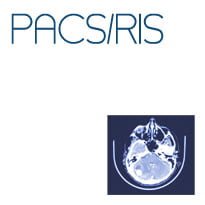Latest wave of PACS/RIS refresh detailed
- 19 September 2013

Eighteen trusts in England are planning to exit their picture and archiving communications systems contracts at the end of June 2014, according to the latest e-bulletin from the Health and Social Care Information Centre.
The National PACS Programme, launched by the National Programme for IT in 2005, split the country into five clusters, with a local service provider for each cluster.
PACS systems were rolled out to 128 trusts. Under the agreement, most English trusts were required to replace their PACS and radiology information systems by the end of June 2013.
Some trusts had a longer deadline, however. In London, contracts will not expire until June 2014, and trusts there have been divided into three exit phases: early (before June 2014); exit on expiry; and continuation of service (until July 2015 or later).
Trusts in the two adjoining clusters, where Accenture was the LSP (the North East, Yorkshire and the Humber, and East Midlands and East of England) were given an option to extend their contracts, and most have done so.
“The wheels of exit in London and the North East, East Midlands and East regions are actively in motion,” the e-bulletin, written by PACS programme head Alasdair Thompson, says.
“Currently, approximately half of the trusts in both of these regions have formally submitted notice of their intention to exit on 30 June 2014. The majority of these will procure a replacement PACS using the NHS Supply Chain framework.”
Data localisation is an important part of the transition, and in London “significant progress” has been made on the localisation solution, according to the e-bulletin.
Sectra, the PACS supplier for the London trusts, has defined a data localisation approach and agreed it with HSCIC and BT, the LSP.
HSCIC reportes that in the North East cluster, six trusts have exited their contracts, while the remainder have submitted termination notices to leave in June 2014, except for Airedale, Mid Yorkshire Hospitals, and Harrogate and District NHS trusts, which plan to leave shortly after this date.
In the East Midlands and East of England cluster, all 17 trusts took advantage of the one-year contract extension to June 2014, and none have exited.
Of the 11 trusts in the East of England, five trusts submitted 12-month termination notices in June 2013. Two more are expected in August 2013 and the remainder in September 2013.
The six trusts in the East Midlands have formed a consortium to procure through the Official Journal of the European Union and competitive dialogue, and deployment activity is expected to commence in the third quarter of 2014.
Accenture is working closely with HSCIC to develop data localisation options for trusts leaving the national contracts.
HSCIC’s PACS team has spent the summer gathering knowledge and lessons learnt from the first wave of the PACS exit, Thompson writes.
These lessons will be summarised in a series of documents on the HSCIC website, and followed by workshops at various trusts to collect their experiences.
“The final piece of the jigsaw will be to invite suppliers, both incumbent and incoming to provide their experiences of the process,” he adds.
England’s PACS/RIS refresh will be discussed at the RCR Imaging Informatics Group Annual Meeting that will be co-located with EHI Live 2013 at the NEC in Birmingham from 5-6 November. The meeting will discuss many aspects of PACS, RIS, image sharing, and storage, and is open to members of all disciplines with an interest in the burgeoning area of imaging informatics. This year’s conference is free for all visitors to attend.




